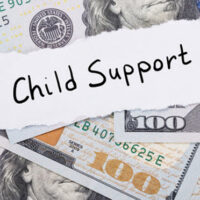How Does Death Affect Child Support?

Child support is a periodic monetary aid of a fixed sum that a child receives from either of their parents following their divorce. Its value to a child cannot be overstated, and in 2017, the Government of Florida distributed almost $1.5 billion worth of money in child support funds.
In most cases, child support is provided by the parent until the child is capable enough of sustaining themselves. On occasions where the child is physically or mentally disabled, however, this periodic payment may go on for the rest of the child’s lifetime. This, of course, brings us to the question at hand: what would happen to the child after the paying parent dies?
Child Support Is Regulated Under Estate Law
Florida law has a set way for paying expenses and obligations when the person who owes money passes away, and this includes child support. This specific method divides all possible expenses into seven separate classes, the first of which should be paid in full before going into the next part. Child support belongs to Class 6, which means that paying for child support will have to wait until the payments for the first five classes are successfully completed first.
What Happens if the Decedent Does Not Have Enough Money?
If the decedent does not have enough money in their estate, then the claimants are “paid ratably in proportion to their claims.” This means that if the child has special needs and the other expenses are relatively less important, then the child can have a bigger share over the money. However, you should take note that the shared money comes after the last fully paid class. For example, if Class 5 was paid in full, then the child will need to share the money with expenses from Class 7.
And What About the Decedent’s Children?
Family allowance is included in Class 5. This means that they are given more priority in the order compared to children outside the family. Nevertheless, if Class 4 has yet to be fully paid before running out of funds, then the children’s share will be divided based on the importance of their claims.
But What if the Parent Acquires a Disability Instead?
In the event that the parent loses the ability to work, then a modification of child support should be in place. In many cases, either parent can ask a lawyer to file for this.
But there are times when the payor becomes unable to file at all. For example, this can include being in a comatose state. In this case, a trusted person should be making the financial decisions in lieu of the incapacitated parent.
Are You Facing Issues With Claiming Child Support After the Death or Disability of the Payor Spouse?
In such cases, it is always advisable to get the aid of an experienced family law attorney. Don’t hesitate to contact the skilled Port St. Lucie family attorneys at Baginski Brandt & Brandt for help.
Resource:
justice.gov/criminal-ceos/citizens-guide-us-federal-law-child-support-enforcement
https://www.bbblegal.com/how-caretaking-duties-can-affect-division-of-assets/
